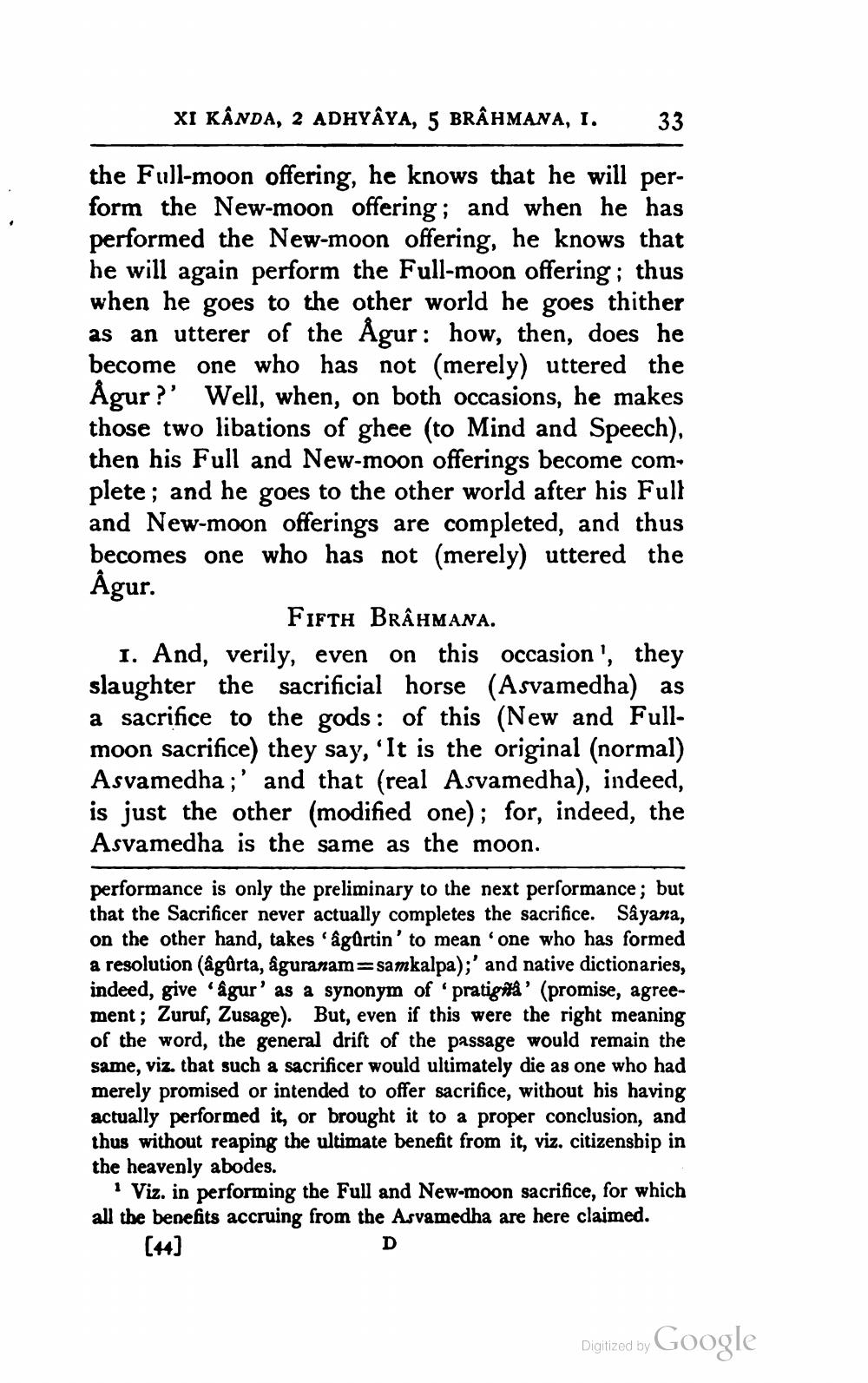________________
XI KÂNDA, 2 ADHYAYA, 5 BRAHMANA, I.
33
the Full-moon offering, he knows that he will perform the New-moon offering; and when he has performed the New-moon offering, he knows that he will again perform the Full-moon offering; thus when he goes to the other world he goes thither as an utterer of the Ågur: how, then, does he become one who has not (merely) uttered the Ågur?' Well, when, on both occasions, he makes those two libations of ghee (to Mind and Speech), then his Full and New-moon offerings become complete ; and he goes to the other world after his Full and New-moon offerings are completed, and thus becomes one who has not (merely) uttered the Ågur.
Fifth BRAHMANA. 1. And, verily, even on this occasion', they slaughter the sacrificial horse (Asvamedha) as a sacrifice to the gods: of this (New and Fullmoon sacrifice) they say, 'It is the original (normal) Asvamedha;' and that (real Asvamedha), indeed, is just the other (modified one); for, indeed, the Asvamedha is the same as the moon.
performance is only the preliminary to the next performance; but that the Sacrificer never actually completes the sacrifice. Sâyana, on the other hand, takes 'âgârtin' to mean 'one who has formed a resolution (águrta, âguranam=samkalpa);' and native dictionaries, indeed, give 'âgur' as a synonym of 'pratigita' (promise, agreement; Zuruf, Zusage). But, even if this were the right meaning of the word, the general drift of the passage would remain the same, viz. that such a sacrificer would ultimately die as one who had merely promised or intended to offer sacrifice, without his having actually performed it, or brought it to a proper conclusion, and thus without reaping the ultimate benefit from it, viz. citizenship in the heavenly abodes.
· Viz. in performing the Full and New-moon sacrifice, for which all the benefits accruing from the Asvamedha are here claimed.
[44]
D
Digitized by Google




